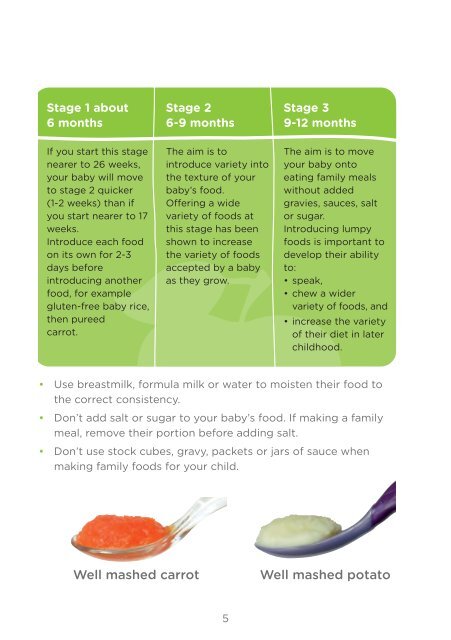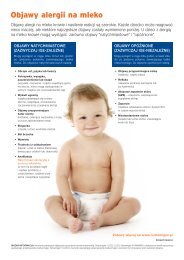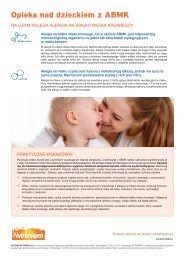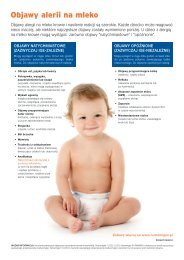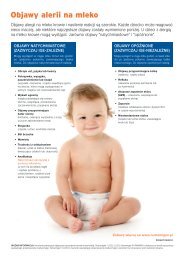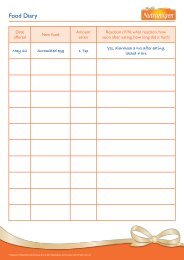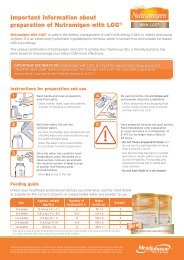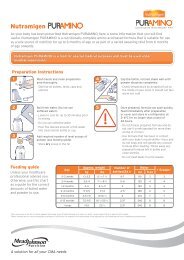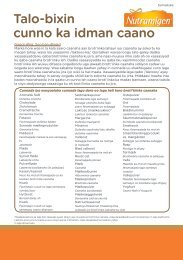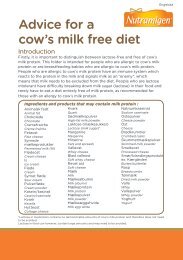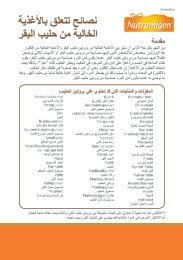HPM00971_0-UK
You also want an ePaper? Increase the reach of your titles
YUMPU automatically turns print PDFs into web optimized ePapers that Google loves.
Stage 1 about<br />
6 months<br />
Stage 2<br />
6-9 months<br />
Stage 3<br />
9-12 months<br />
If you start this stage<br />
nearer to 26 weeks,<br />
your baby will move<br />
to stage 2 quicker<br />
(1-2 weeks) than if<br />
you start nearer to 17<br />
weeks.<br />
Introduce each food<br />
on its own for 2-3<br />
days before<br />
introducing another<br />
food, for example<br />
gluten-free baby rice,<br />
then pureed<br />
carrot.<br />
The aim is to<br />
introduce variety into<br />
the texture of your<br />
baby’s food.<br />
Offering a wide<br />
variety of foods at<br />
this stage has been<br />
shown to increase<br />
the variety of foods<br />
accepted by a baby<br />
as they grow.<br />
The aim is to move<br />
your baby onto<br />
eating family meals<br />
without added<br />
gravies, sauces, salt<br />
or sugar.<br />
Introducing lumpy<br />
foods is important to<br />
develop their ability<br />
to:<br />
• speak,<br />
• chew a wider<br />
variety of foods, and<br />
• increase the variety<br />
of their diet in later<br />
childhood.<br />
• Use breastmilk, formula milk or water to moisten their food to<br />
the correct consistency.<br />
• Don’t add salt or sugar to your baby’s food. If making a family<br />
meal, remove their portion before adding salt.<br />
• Don’t use stock cubes, gravy, packets or jars of sauce when<br />
making family foods for your child.<br />
Well mashed carrot<br />
Well mashed potato<br />
5


